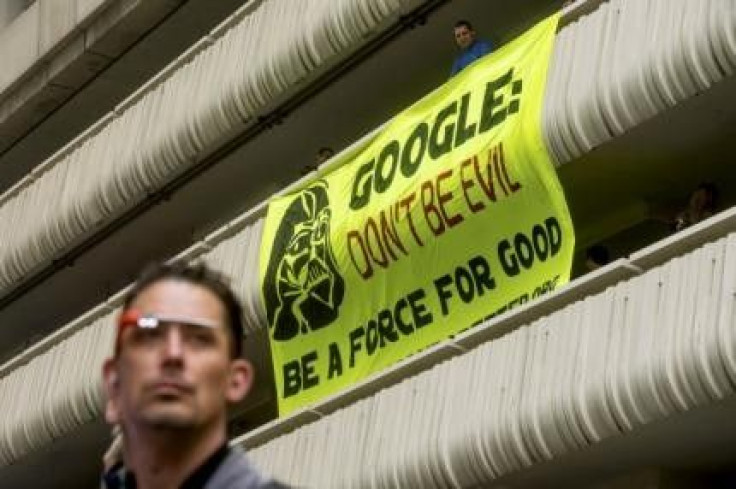Hackers Use Google Maps and Google Glass for Cybercrimes

Google, a multinational American corporation which specialises on Internet services and products, have helped different people worldwide in many different ways. Somehow, others have found their way to use Google's products and services in a different way.
Google Glass
Cyber forensics researchers from the University of Massachusetts Lowell discovered a way to steal passwords entered from a device using Google Glass.
This wearable device, the advance technology that can do almost anything smartphones can, has now been found to be more than that.
Xinwen Fu, a security researcher, developed software that analyses hand movements from videos. Fu used Google Glass to record and analyse reporter Laurie Segall's finger movements—while the subject is typing, Fu is recording. Fu can figure out passcodes even without looking at the screen, CNN Money reports.
Fu and his team used a camcorder to test the said software, where a distance of over 140 feet allows them to steal passcodes, the report says.
Fu says that with keys always in the same place, recording and analysing hand movements are now easier by the use of wearable technology. Fu hopes that exposing these dangers will lead to solutions and tools, like applications that randomise keys, will be implemented to avoid these dangers in the future.
"We only use the passcode as one example to demonstrate the danger", Fu said to CNN. "What if you actually use mobile banking?"
Google Maps
Rene Bertagna, owner of Serbian Crown, a restaurant serving exotic meats like lion, in Washington DC suddenly found he's 40-year-old business shut down.
As Wired reports the story, Bertagna first experienced a 75 per cent sudden drop in customers one weekend in the early months of 2012. Succeeding months didn't change any of this and left Bertagna wondering. Only later did he discover that Google Places was misinforming searchers. Anyone who searched Serbian Crown using Google Maps was misinformed that the restaurant was closed on Mondays, Saturdays and Sundays.
Bertagna has sued Google, blaming the company for his restaurant's downfall. However, Google denied such accusation. "The Serbian Crown should not be permitted to vex Google or this Court with such meritless claims," the company wrote in a filing, as qouted by the Wired report.
Since April 2013, Serbian Crown was already marked as "permanently closed."
In a world where there's easy access to technology like this, different reports on cybercrime are now rampant. Protect yourself and report crimes to avoid being a victim.






